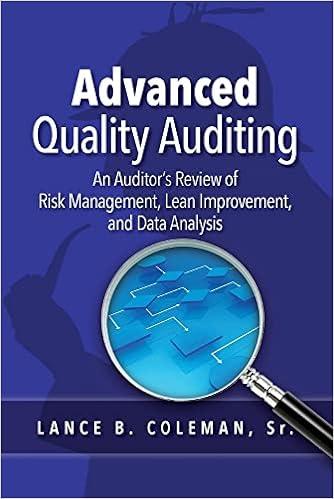Question
If the auditor concludes that there are contingent liabilities, he or she must evaluate the significance of the potential liability and the nature of the
If the auditor concludes that there are contingent liabilities, he or she must evaluate the significance of the potential liability and the nature of the disclosure needed in the financial statements. Which of the following statements is not true?
| The potential liability is sufficiently well known in some instances to be included in the financial statements as an actual liability. | ||
| Disclosure may be unnecessary if the contingency is highly remote or immaterial. | ||
| A CPA firm often obtains a separate evaluation of the potential liability from its own legal counsel rather than relying on management or management's attorneys. | ||
| The client's attorneys must remain independent when evaluating the likelihood of losing the lawsuit. |
Step by Step Solution
There are 3 Steps involved in it
Step: 1

Get Instant Access to Expert-Tailored Solutions
See step-by-step solutions with expert insights and AI powered tools for academic success
Step: 2

Step: 3

Ace Your Homework with AI
Get the answers you need in no time with our AI-driven, step-by-step assistance
Get Started


